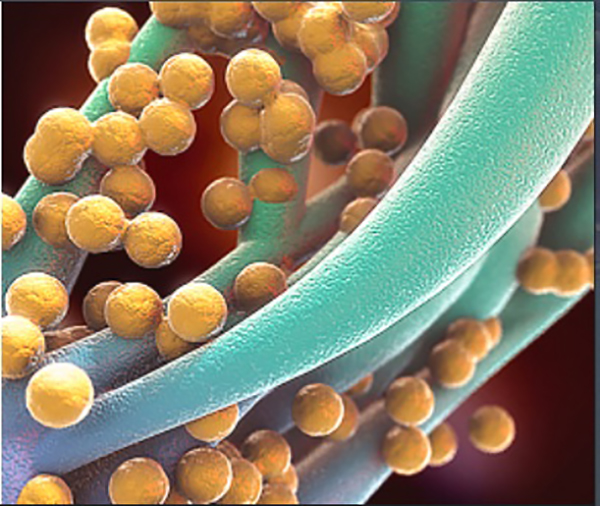Lysins

Lysins
WHAT ARE LYSINS?
Lysins are a novel class of direct lytic agents. Lysins are proteins derived from naturally occurring bacteriophage, viruses which infect bacteria. When produced in recombinant form and applied to bacteria, lysins cleave a key component in the structure of the bacterial peptidoglycan cell wall which results in rapid killing of the target bacteria.
WHAT MAKES LYSINS DIFFERENT?
Lysins are direct lytic agents that directly bind and cleave the bacterial cell wall and essentially kill on contact. This novel mechanism of action is fundamentally different from antibiotics, which require cell division or metabolism in order to kill bacteria or stop their growth. In addition to their mechanism of action, lysins have a number of key features that further differentiate them from antibiotics:
KEY FEATURES
- Rapid killing of bacteria
- Rapid clearance of biofilms
- Low propensity to develop resistance
- Full activity against antibiotic-resistant bacteria (while sparing "good" bacteria)
- Synergy with existing antibiotics
KEY POTENTIAL
- Treat infections with drug-resistant strains
- Improve patient outcomes
- Reduce treatment times
- Shorten time in ICU and/or hospital
- All while not contributing to the global crisis of drug resistance
LYSIN DISCOVERY PLATFORM
The main objective of our lysin discovery platform has been to bring forth a portfolio of lysins that selectively target the largest threats of resistant bacteria, commonly referred to as the ESKAPE pathogens (Enterococcus faecium, Staphylococcus aureus, Klebsiella pneumoniae, Acinetobacterbaumannii,Pseudomonas aeruginosa, and Enterobacter species) which are the leading causes of hospital acquired (nosocomial) infections throughout the world.
Our internal lysin discovery platform employs bioinformatics and a series of metagenomic-based techniques to identify and clone bacteriophage lysins from bacterial, viral, and environmental sources. The field of metagenomics is based on the bulk extraction of DNA/RNA from environmental samples (e.g., soil, water, etc.) without prior isolation of individual microbial sources. This is useful when one considers that less than 1% of microbes are culturable under standard laboratory conditions. Once extracted, the metagenomic DNA can then be examined using sequence-based methods or by proprietary functional screens. These functional screens for bacteriophage lysin activity form the major component of our lysin discovery work. Once cloned, our scientists also employ a variety of techniques to further optimize and "engineer" changes to the lysins to introduce specific characteristics which we believe may be favorable for potential therapeutic use.
We have acquired worldwide exclusive rights to nine lysins discovered at The Rockefeller University. Eachlysintargets specific Gram-positive bacteria, including Staph aureus, Streptococcuspneumoniae,Enterococcusfaecalis, Group B streptococcus and Bacillus anthracis.